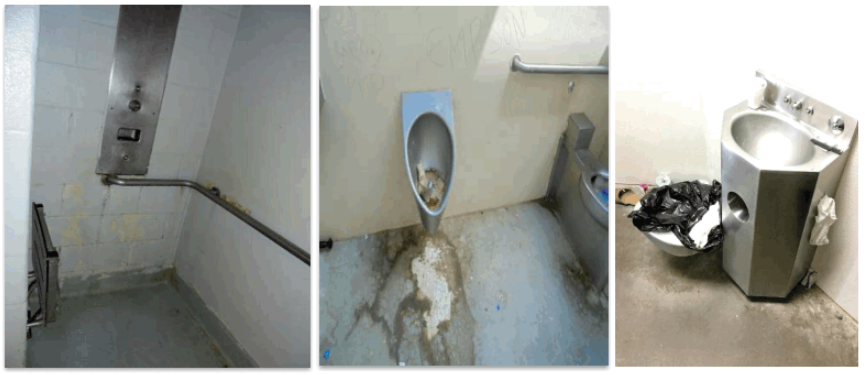Overwhelmed immigration facilities already have ‘egregious’ safety violations – DHS
The Department of Homeland Security found “egregious” health and safety violations last year, during inspections of overwhelmed immigration facilities where detainees live under squalid conditions without access to healthcare.
Responding to complaints from human rights groups, the DHS inspector general conducted unannounced inspections at four Immigration and Customs Enforcement (ICE) detention centers in California, Louisiana, Colorado and New Jersey between May and November of last year, according to a DHS report obtained by CNN.
The inspectors found a shocking litany of problems, some of which they said posed “immediate risks” to detainees, ranging from “overly restrictive segregation, inadequate medical care, unreported security incidents, and significant food safety issues.”

Improvised nooses were discovered in a number of holding cells. Though the DHS report gives few details about the nooses, a previous inspection at the California center found similar objects in 15 cells, some of which detainees reportedly used to attempt suicide.
In 2017, Panamanian detainee Jeancarlo Jimenez-Joseph was found dead in his cell at an ICE holding center in Georgia, hanging from a rope fashioned from a bed sheet. Suffering from severe mental illness, he ended his life after 19 days in solitary confinement.
Segregation practices at three facilities posed major problems and “infringed on detainee rights,” the DHS report said, finding unnecessary or overly frequent use of restraints and invasive strip searches. As in the case of Jimenez-Joseph, many detainees are left in isolation for extended periods with inadequate supervision.
Also on rt.com Bipartisan breakdown as crisis levels of migrants push US-Mexico border to 'breaking point'All four facilities appeared to be serving expired or rotten food, exposing prisoners to food-borne illnesses. At the New Jersey center, packages of raw chicken leaked blood “all over” refrigeration units – which were left that way – while “slimy, foul-smelling” lunch meat and moldy bread were found in storage.
At the time of the inspections, the facilities in Colorado, Louisiana and California were operated by a private contractor, GEO Group Inc. The New Jersey detention center continues to be managed by a local department of corrections. Between them, the facilities can house just shy of 5,000 detainees.
The report says little about overcrowding, but the problems facing immigrant detention centers are inevitably linked to the record number of migrants and asylum-seekers crossing the US border, what acting Customs and Border Patrol (CBP) Commissioner John Sanders called a “full-blown emergency.”
In May alone, nearly 133,000 people were apprehended near the border with Mexico attempting to enter the country illegally, according to the CBP, putting immense strain on holding centers.
Also on rt.com US shutters large migrant facility in Texas amid flu outbreakThe facility in McAllen, Texas may be an emblematic case. Converted from a warehouse designed to hold 1,500 people, the structure currently houses over 2,400. Cost overruns have wiped out McAllen’s annual budget in mere months, while the outbreak of an unknown virus forced the overcrowded facility to temporarily shut its doors in May.
Seeking to stem the flood of migrants, the White House announced last week that new tariffs would be imposed on Mexico if the country failed to take steps to address the migrant crisis. Three days of talks with Mexican envoys in Washington have yet to produce an agreement, though US President Donald Trump said Friday that there was still a “good chance” for a deal before the first round of tariffs takes effect on June 10.
Like this story? Share it with a friend!














